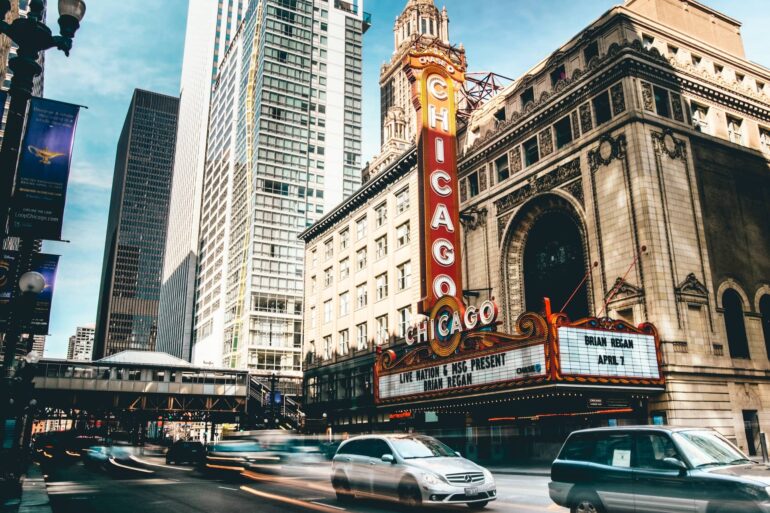Alright, Chicago. The Windy City. Deep dish dreams, architectural eye-candy, maybe a Cubs game? Sounds pretty good, right?
But hold up. Before you mentally picture yourself strolling down Michigan Ave or freezing your butt off by the lake (more on that later), let’s talk real life in Chicago.
It’s a big, bold, amazing city. It’s also got… challenges.
So, if you’re seriously thinking about making the move, here’s the unfiltered lowdown – the awesome perks and the stuff that might make you wanna stay home.
Let’s get into it.
This article contains affiliate links where we may get a small commission if you click on the link and purchase. No extra cost is added to you.
Pros of Living in Chicago
Pro #1: Culture Vulture Heaven
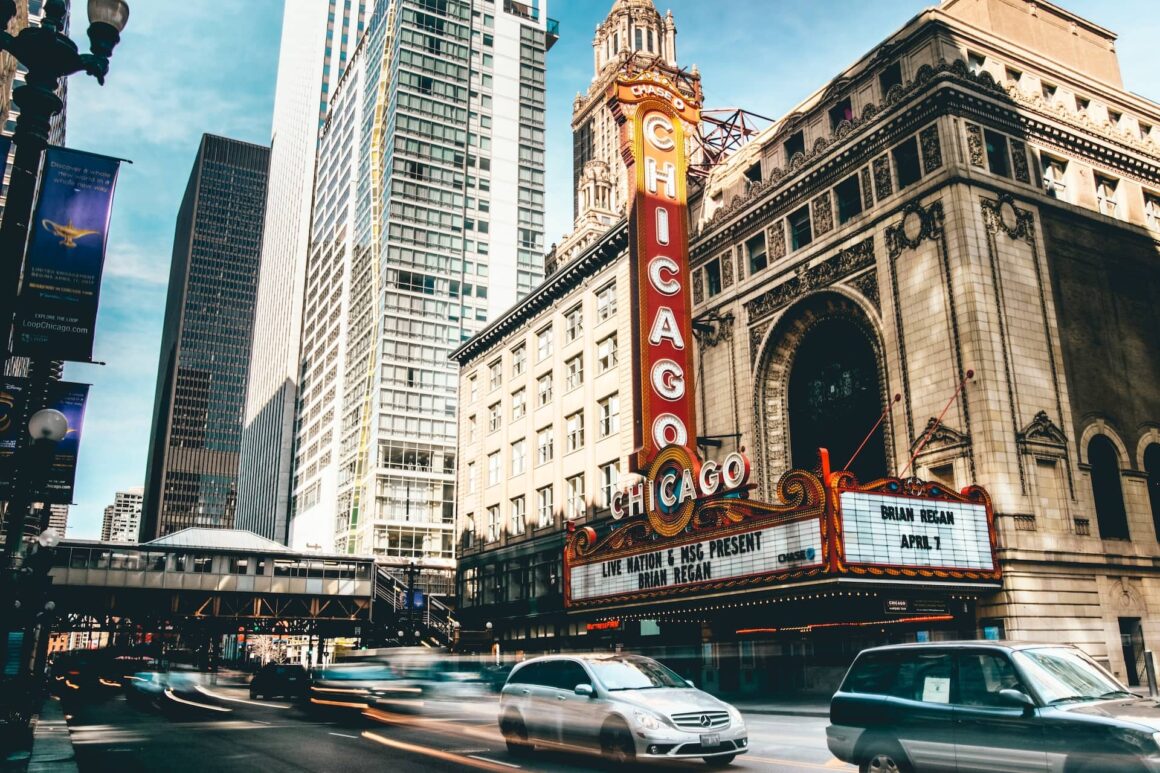
Art nerds, theatre kids, music lovers – Chicago’s got you covered.
The Art Institute is world-class (seriously, Ferris Bueller wasn’t wrong).
The theatre scene? HUGE. Over 200 venues, from tiny black boxes to Broadway stages.
Throw in killer jazz and blues clubs, tons of festivals, and museums galore? You’ll never be bored.
Fun fact: The arts and culture sector in Illinois state represents 3.7% of the state’s GDP and supports 224,102 million jobs. (source)
🖼️ Explore these top-rated Chicago Arts & Culture tours!
Pro #2: Hot Sports and Entertainment Scene
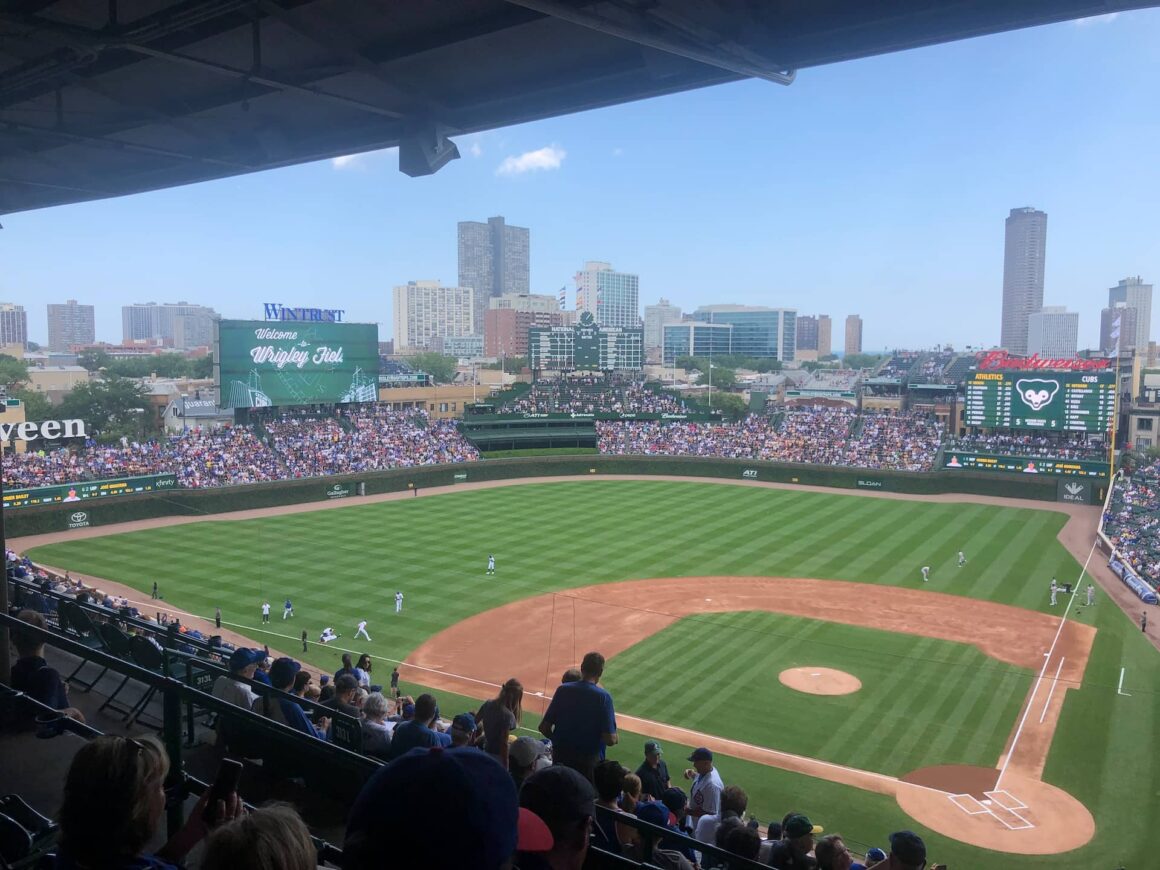
Chicago takes its sports SERIOUSLY.
Bears, Bulls, Cubs, Sox, Blackhawks… pick your poison. The energy at games is insane.
Historic spots like Wrigley Field are basically holy ground. Tailgating, game days, the whole nine yards – it’s a vibe.
Pro #3: That INSANE Skyline & Cool Buildings
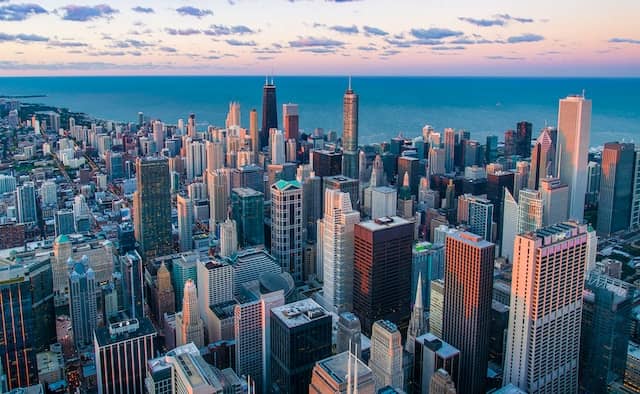
Look up. Chicago basically invented the skyscraper, and the skyline is iconic for a reason.
From the massive Willis (Sears) Tower to sleek modern designs, it’s an architecture geek’s paradise.
Take an architecture boat tour. Seriously, just do it. It’s worth the hype.
Pro #4: Seriously EPIC Food Scene (Yeah, Pizza Included)

Okay, let’s talk food.
Yes, deep dish exists (and you should try it, don’t @ me). Yes, Chicago-style hot dogs are a thing (no ketchup!).
But the food scene is SO much more. Michelin stars, cheap eats, global flavors thanks to diverse neighborhoods (amazing Polish, Mexican, Vietnamese, you name it).
Food festivals, craft breweries… you will eat well here. Dangerously well.
🍕 Explore the best food in Chicago with these guided food tours!
Pro #5: Great Public Transport
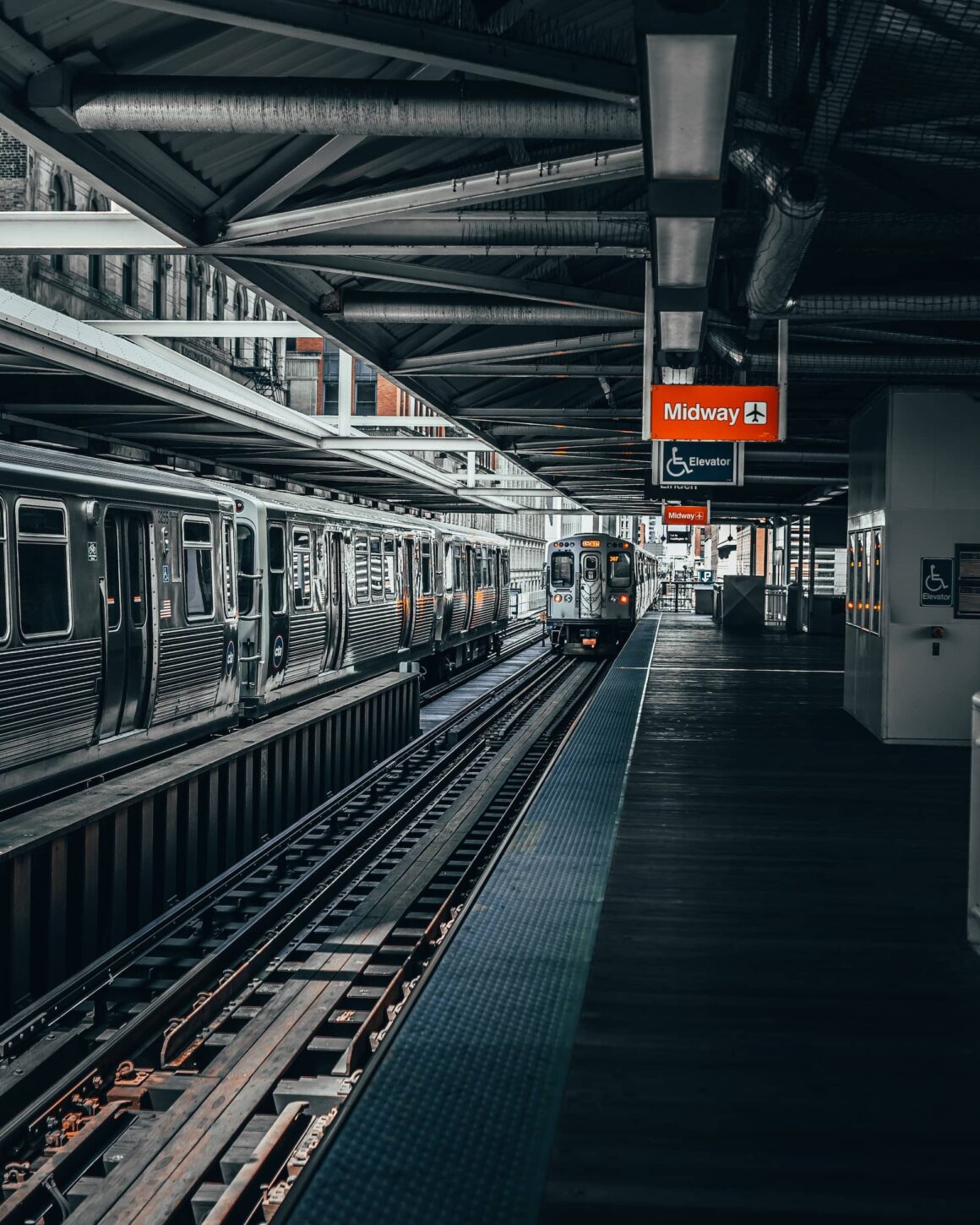
Chicago’s public transit (the CTA) is legit good. Especially the ‘L’ train system (parts are elevated, hence the name).
It connects tons of neighborhoods, runs frequently (even 24/7 on some lines!), and offers cool city views.
Add in extensive bus routes and decent bike lanes, and going car-free is totally doable and often easier.
Fun Fact: In 2022, total CTA ridership reached 243.5 million bus and train rides. (source)
Pro #6: Cheaper Than NYC or LA (But Still a Big City)
Want big city life without the insane price tag of NYC or LA? Chicago’s your middle ground.
Housing, dining, entertainment – your dollar generally stretches further here.
You still get world-class amenities, just without selling quite as many organs.
Did you know: The average cost of a one-bedroom apartment in the city center is $3,789.87 in New York City, compared to $2,251.24 in Chicago? (source)
Pro #7: The City is Beautiful
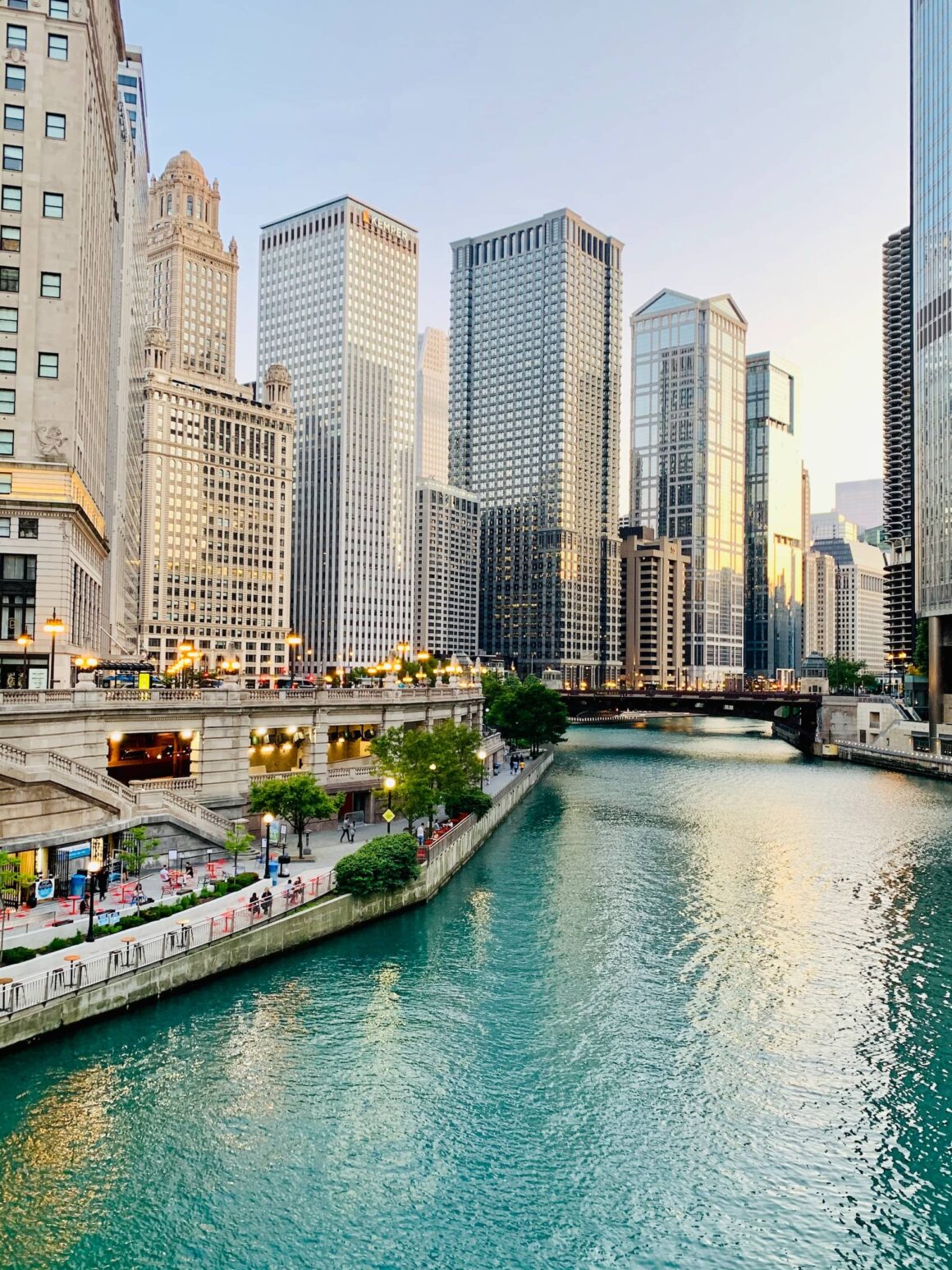
For a massive city, Chicago does green space RIGHT.
The lakefront is stunning – 18 miles of public beaches and trails along Lake Michigan. Perfect for runs, bikes, or just chilling.
Millennium Park (home of The Bean!), Grant Park, Lincoln Park… tons of spots to escape the concrete and pretend you’re not in a giant metropolis.
Pro #8: Midwestern Nice is Real (Mostly)
People in Chicago tend to be pretty friendly and down-to-earth. Think less coastal-elite-snobbery, more genuine warmth.
There’s a strong sense of neighborhood pride and community. People will chat with you, help you out. It feels welcoming.
Pro #9: Chicago is a Transport Hub
O’Hare Airport is HUGE and connects you to pretty much anywhere in the world. Midway is a solid second airport too.
Plus, being in the middle of the country means driving to other Midwest cities is relatively easy. It’s a great home base for travelers.
Pro #10: Diversity
Chicago isn’t just one vibe; it’s a collection of distinct neighborhoods, each with its own character.
From the Polish Village to Pilsen (Mexican), Chinatown to Greektown, you can experience different cultures just by hopping on the ‘L’. Keeps things interesting.
Pro #11: Rich History & Cool Stories
This city has SEEN things. The Great Fire, Al Capone, the World’s Fair, the birth of blues music…
You feel that history walking around. Awesome museums, historic architecture, legendary music venues – lots to explore.
Cons of Living in Chicago
Con #1:Yeah, Let’s Talk About Crime

No sugarcoating: Chicago has issues with crime, particularly violent crime, concentrated in specific neighborhoods on the South and West sides.
While many areas are perfectly safe, it’s a serious concern residents grapple with.
You need to be aware of your surroundings and research neighborhoods carefully.
Con #2: Traffic is Always Bad
Driving in Chicago can be a nightmare. Congestion is bad, especially during rush hour (which feels endless).
The expressways get jammed. Street traffic crawls. If you have to drive regularly, prepare for frustration.
Con #3: Brutal Winters

Forget “Windy City” – think “Arctic Tundra.” Winters are long (like, November to April sometimes), freezing cold, snowy, and WINDY.
That wind chill off the lake is no joke.
Temperatures drop way below zero. It impacts everything – your mood, your commute, your heating bill. Be prepared to hibernate.
Con #4: High Sales Taxes
Illinois doesn’t have the lowest income tax, PLUS Chicago hits you with high sales tax (over 10%!) and notoriously high property taxes if you own.
It adds up and makes the “cheaper than NYC” thing feel a little less cheap sometimes. Factor it into your budget.
Con #5: Poor Air Quality
Like many huge industrial cities, Chicago deals with air pollution. Some days, especially in summer, the air quality can be pretty bad.
If you have respiratory issues, it’s something to be aware of.
Con #6: Parking is a Nightmare (And Expensive)
Finding street parking in many neighborhoods ranges from difficult to impossible (and often requires permits).
Garages and lots?
The city seems designed to make you not want to own a car.
Con #7: High Cost of Living
Even being cheaper than coastal megacities, Chicago is still a major US city.
Housing (rent or buy) is the biggest expense, but groceries, utilities, dining out – it all costs more than in smaller towns or cities.
Don’t expect small-town prices.
🕵🏻♂️ See how Chicago compares with Seattle
Con #8: It’s FLAT. Like, Really Flat.
Love mountains? Hills? Varied terrain? Uh, Chicago ain’t got it.
It’s geographically flat.
Great for biking and walking, less exciting if you crave dramatic landscapes right outside your door.
Con #9: Concrete Jungle
While there are great parks, much of Chicago is dense urban sprawl. Skyscrapers block sun, streets are bustling.
If you need constant, easy access to wide-open nature, the relentless urbanity might feel a bit suffocating sometimes.
Con #10: Not for Those Who Don’t Like the Hustle and Bustle
Chicago has a fast-paced, work-hard energy. People are on the move. It’s loud, crowded, and always on.
If you thrive on that big-city buzz, great! If you prefer peace, quiet, and a laid-back vibe, Chicago might feel overwhelming.
Con #11: School System Challenges
Chicago Public Schools (CPS) is massive and complex. There are excellent schools, but also many that are under-resourced, facing significant challenges.
Quality varies drastically depending on the neighborhood. If you have kids (or plan to), researching schools (public, private, charter) is NON-NEGOTIABLE.
Con #12: Economic Disparities
Like many large cities, Chicago has significant economic inequality. You’ll see wealthy neighborhoods right near areas struggling with poverty and lack of resources.
This impacts everything from safety to school quality to access to healthcare. It’s a visible and ongoing challenge.
So, the Windy City. It’s got incredible highs – culture, food, sports, beauty. And some serious lows – brutal winters, high costs, safety concerns.
Is Chicago the right city for you? It depends on what you value, what you can tolerate, and what kind of adventure you’re looking for.
If you’ve determined to check out Chicago, make sure you take a peek at our picks of the best Italian, ramen, sushi, and brunch spots in Chicago!

